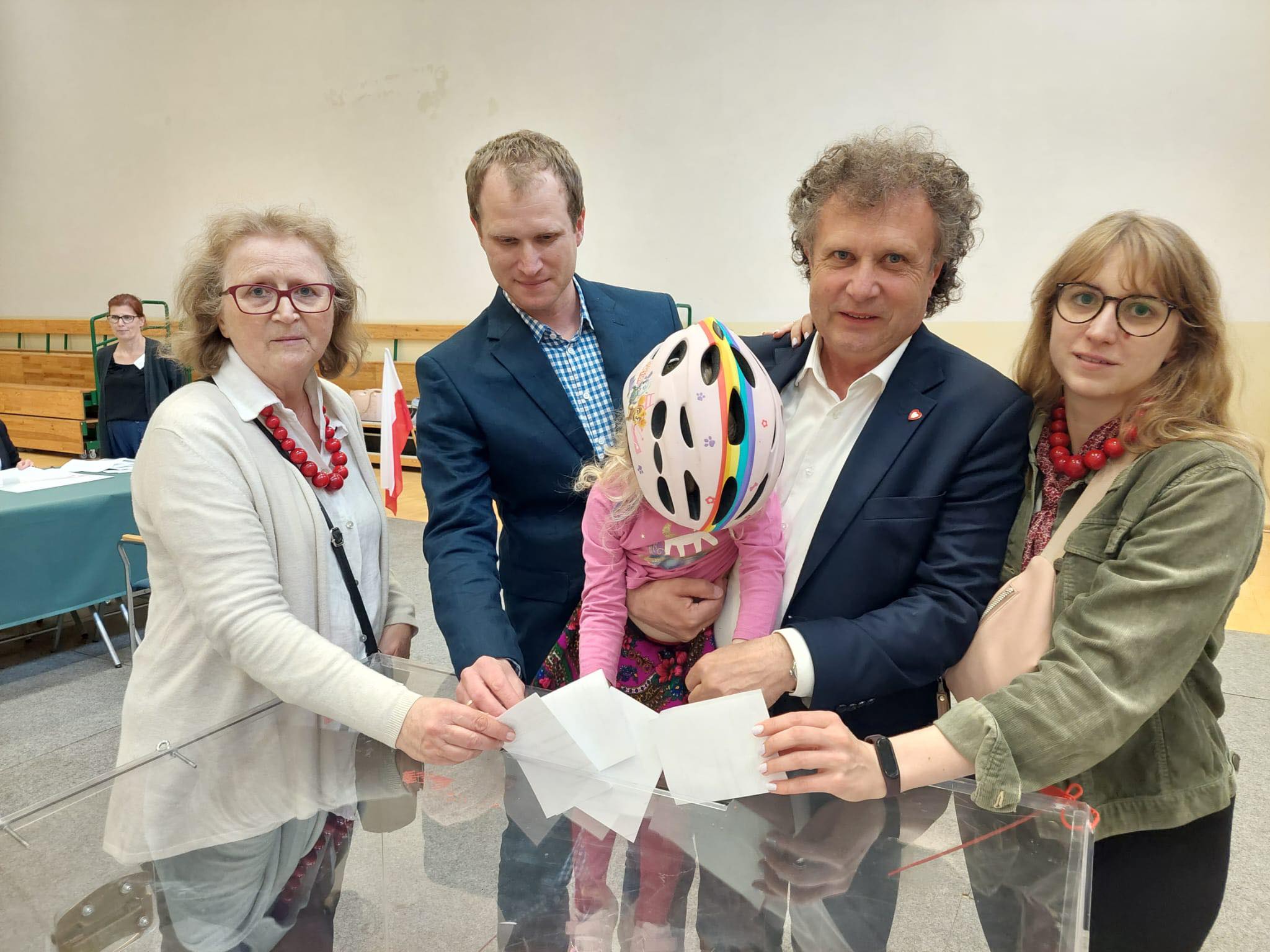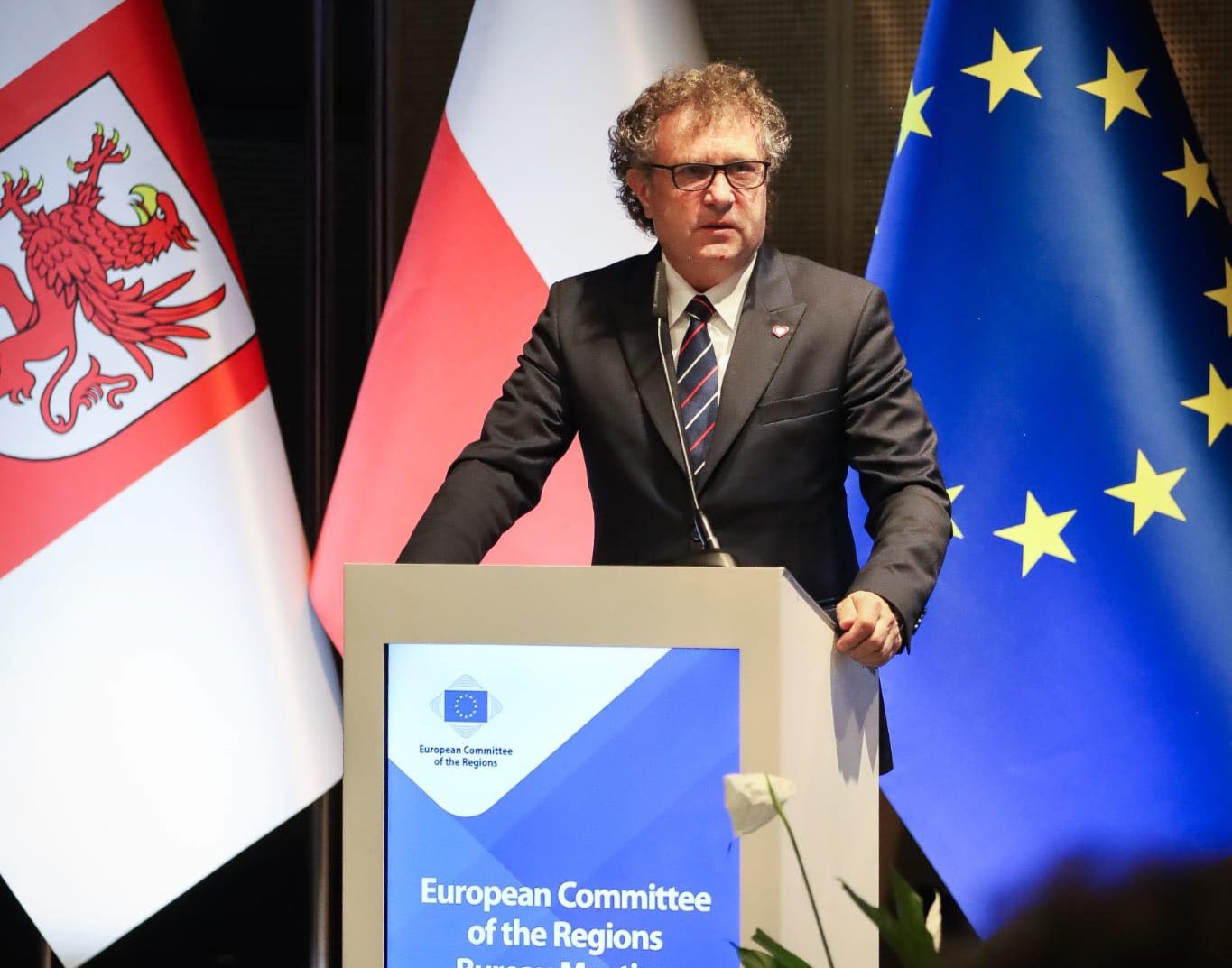The government is looking for alternative solutions within the KPO. Technical complications begin

- The ruling coalition is in favor of decentralization of EU funds - argues Deputy Minister Jacek Karnowski.
- A member of the government promises that money from the KPO will reach local governments immediately after completing the formalities.
- - Decentralization is the key to an effective and responsive security policy - he says in an interview with Portal Samorządowy.
The Civic Coalition assures that it does not intend to interfere in the future local elections, but - as Jacek Karnowski, Deputy Minister of Funds and Regional Policy, admits - politicians must be closer to the people. In an interview with Portal Samorządowy, it also promises that the money from the KPO will reach local governments without unnecessary delays, i.e. probably in August.
5 percent of GDP for defense, "grandmother's" and local government financing reformThe government's ratings are falling, and so is KO's support. Isn't this a sign that voters expected a much faster pace of change than what they see today? Hand on heart, what hasn't worked yet, but should after 18 months of work by the government coalition?
- None of us are entirely satisfied with the pace of change , but no one expected the country to be ruined to such an extent by the previous team. From the justice system to the country's debt.
The creation of the first, transparent budget for 2025 by the current government has finally allowed us to return to managing state finances in the way it should be done. That is, through parliament, and not through funds that Prime Minister Morawiecki established out of control. Thanks to this, we were able to show society the truth about the state of public finances and start fixing them.
Let's not hide the fact that this is a difficult process, because the previous government is responsible for the whole mess. Healing the justice system is also necessary - I would like to remind you that during the time of Minister Zbigniew Ziobro, court proceedings were prolonged and verdicts were issued more slowly than before. The reform was not fully possible, because the president refused to cooperate with the government and assumed that everything was working fine.
Despite these obstacles, much has been achieved in the past year and a half. We have raised the salaries of teachers, who received a 35% raise. We have reformed the method of financing municipalities, cities, counties and provinces - now funds are allocated according to objective indicators, not according to political sympathies.
Fortunately, unlike under PiS, local governments no longer receive political checks. Instead, they receive expected funds from their own revenues, subsidies and grants, which are independent of who voted for whom.
We have also unblocked funds from the National Reconstruction Plan - we are talking about PLN 255 billion (depending on the euro exchange rate). We have already invested PLN 117 billion of this money.
We introduced the so-called " grandmother's leave ", although I prefer to call it "grandfather's leave", as well as leave for entrepreneurs. We reversed the Polish Deal , among others by abolishing the tax on the sale of fixed assets . However, it was not possible to reform the health insurance contribution for small and medium-sized companies - in this case, President Andrzej Duda vetoed the act.
The budget also includes almost 5% of GDP for defense . The Prime Minister was also able to convince about the need to create - within the KPO - a special Security and Defense Fund , which can be used, among other things, to finance elements of the so-called East Shield.
We could mention, for example, in vitro and other projects important from the point of view of the Polish economy and society. Of course, more could always be done, faster, better.
But in these conditions - governing in a real minefield - I think it was still quite a good time for the government. We have more goals and challenges ahead of us, which we are already dealing with.
Donald Tusk beats his breast and admits his mistakes. The previous government did not do this, so you are not afraid that the opposition will use this against you?
- I think each of us should do our own examination of conscience. I did too. Do you know how many days of leave I took for the campaign? 11. Maybe I should have taken five more. Maybe then I could have done even more.
I traveled through dozens of towns - from eastern Poland, through the south, all the way to Pomerania. And you know, we managed to convince over 23 thousand local government officials - mayors, commune heads, councilors - to vote for Rafał Trzaskowski.
Could something have been done faster? Probably yes. Or more? Maybe. But everyone kept saying it would be fifty-fifty - and that's what happened. 180 thousand votes were missing, but over 10 million people voted for Rafał Trzaskowski. This is a huge capital of trust and a strong voice of hope.
"We need to be closer to people, not only before the elections"Maybe you didn't hold your predecessors accountable enough? How will you explain to voters what you failed to do?
- For example, in the Pegasus case, we already have over 200 proceedings with charges, there are the first indictments. Recently, two high-ranking CBA officers were charged - for deceiving the court in order to be able to spy on Pegasus. These are not minor cases, these are serious crimes.
I understand that people expect quick verdicts , but this is the structure of the justice system that PiS left us - dismantled by Zbigniew Ziobro, overloaded, inefficient. It cannot be fixed overnight, especially when the president does not want to cooperate.
But there are effects. Prime Minister Morawiecki has been charged - and this is largely due to the work of the investigative committee on the visa scandal, of which I was vice-chair. The evidence is solid, and the findings have been confirmed by administrative courts.
I would like it all to happen faster. I know that voters want it too. But we will not do it by breaking the law - we are not like our predecessors. We are doing it honestly, step by step. And we will do it until we succeed.
But how to convince voters of this, especially after the presidential elections?
We need to act faster, explain more, talk more and inform about our activities. Be where people are more often - not only in the media, but on the streets, in small towns, in counties. We need to be closer to people , not only before the elections. And we need to do it together.
This cannot be just a question of one party's ambitions - it must be a joint effort of the entire coalition . If we show cohesion and true cooperation, we will win over those who are still hesitant.
I am not afraid of PiS. I am convinced that we will win the next parliamentary elections - but only if we draw conclusions and really work as a team. We, as the Civic Coalition, are ready for full cooperation. Not only with our partners in the government, but with all those who care about Poland.

Does the coalition intend to develop a common vision for local governments for the 2029 elections?
- Local elections have their own rules. There really are no coincidences here. Local communities choose people they know, who are visible, present, "touchable" to them - and who have actually done something for their commune, city or district.
If someone wants to win local elections, they must be part of this local community. They must have a specific plan for it - tailored to its needs, not a general party manifesto.
Of course, we have many of our members, supporters and collaborators in local governments. But the truth is that most local government officials are non-partisan . And that's a good thing. I myself won the elections in Sopot as a non-partisan, and people voted not for the party - but for me as a person they know and trust.
Only the elections to the regional assemblies have a more clearly political character. There, coalition cooperation will indeed be key. But in the communes and counties, those who are close to the people win - not party logos.
So you leave local government elections to local government officials?
- I have always been a supporter of a common-sense approach. I will give you an example: Aleksandra Dulkiewicz in Gdańsk or Magdalena Czarzyńska-Jachim in Sopot - these are people who know local needs very well and have the support of residents. I myself once ran from the Platforma Sopocian committee, a local agreement in which we joined forces - and it worked.
In local communities, it is not the party logo that wins, but the specific person. People vote for those they know and trust. And that is right. Of course, some candidates have a party background - and that is good - but it cannot overshadow the most important thing, which is contact with residents and effective work on their behalf.
It is only at the level of the regional assemblies that truly political elections begin . Party and coalition lists are natural there, because the scale is completely different.
The money from the KPO will go to local governments immediatelyLet's move on to money. Poland will receive not PLN 8-12 billion, but PLN 26 billion from the third payment from the KPO. Minister Katarzyna Pełczyńska-Nałęcz announced a few days ago that the transfer from the EU will be received in August this year. Do you know the specific date when the money will actually reach local governments?
- When the KPO was being negotiated, I represented the Union of Polish Cities and the Joint Government and Local Government Commission. We pressed for - similarly to cohesion policy programmes, where approx. 42% of funds are distributed by voivodeship marshals - part of the money from the KPO should also go to local governments. Unfortunately, the government at the time decided otherwise. The KPO was centralised.
Although the funds are distributed centrally, a very large amount goes directly to local governments (e.g. buses, trams, ring roads) or responds to their needs, e.g. railways, digital competences.
It was not possible to reverse this decision later without the risk of losing these funds. But as the current government, we are strong supporters of decentralizing further EU funds - this is a priority for us.
When the KPO money reaches Poland in August, we immediately make it available to the beneficiaries. As soon as the local government signs the agreement, conducts the tender, the contractor completes the task and presents the invoice - the funds are paid immediately after approval.
I am not aware of any cases of delays at this stage - if there are any, I will gladly verify it. But from what I know, the money reaches local governments immediately after completing the formalities.
To be completely clear, our goal is to make things happen even faster. We have a limited time to use these funds, so we absolutely do not want any delays.





